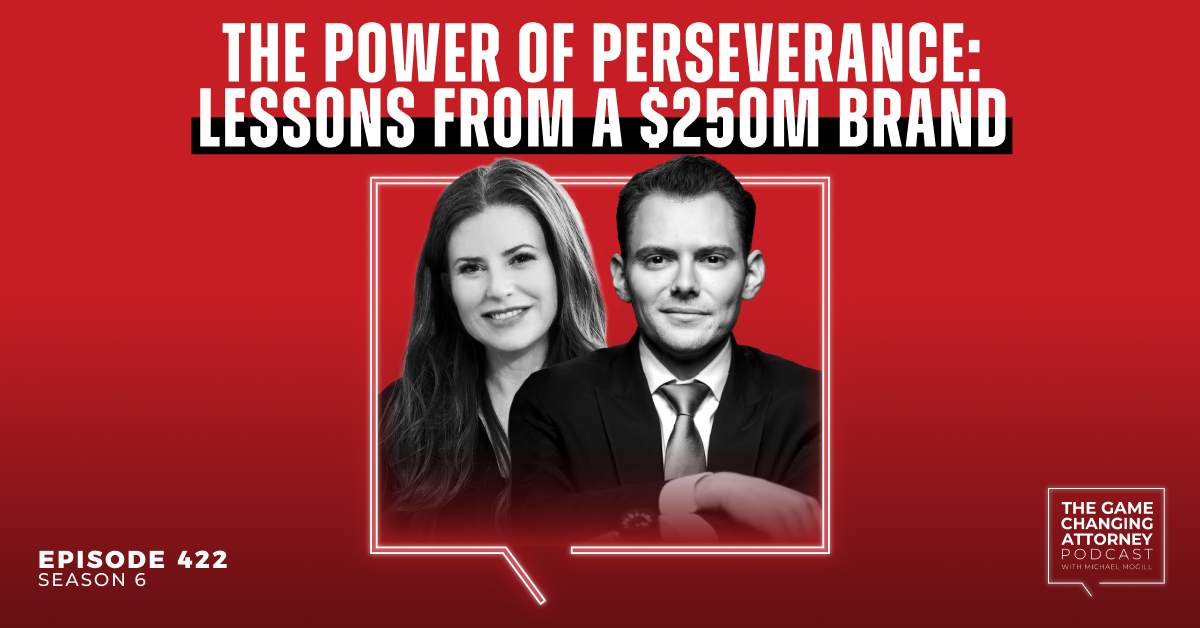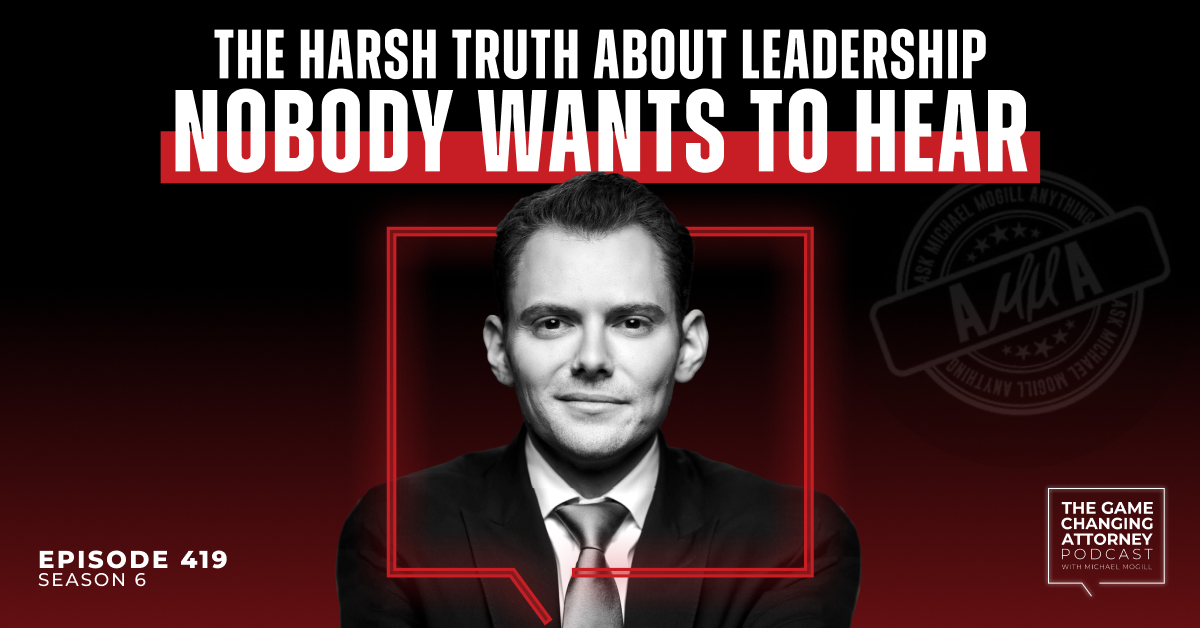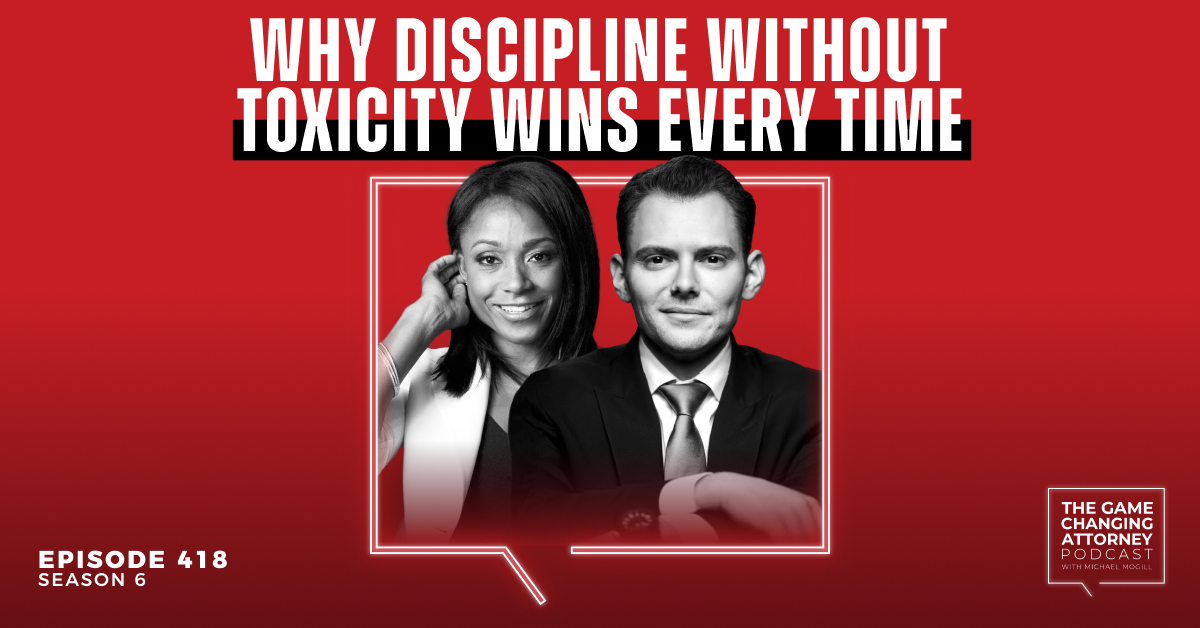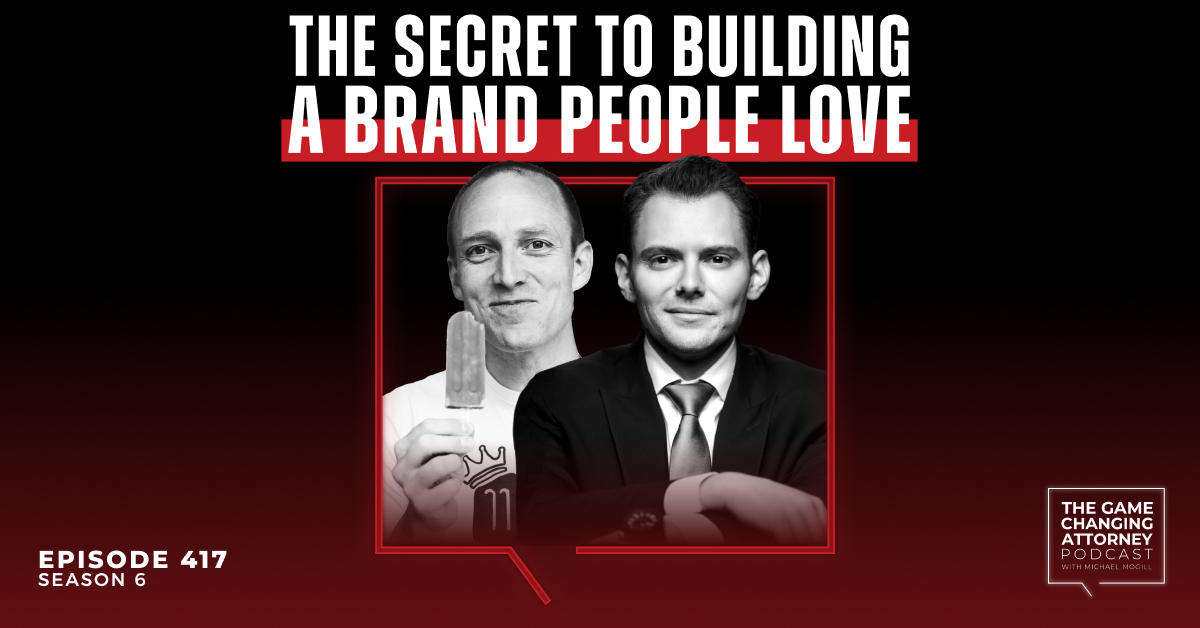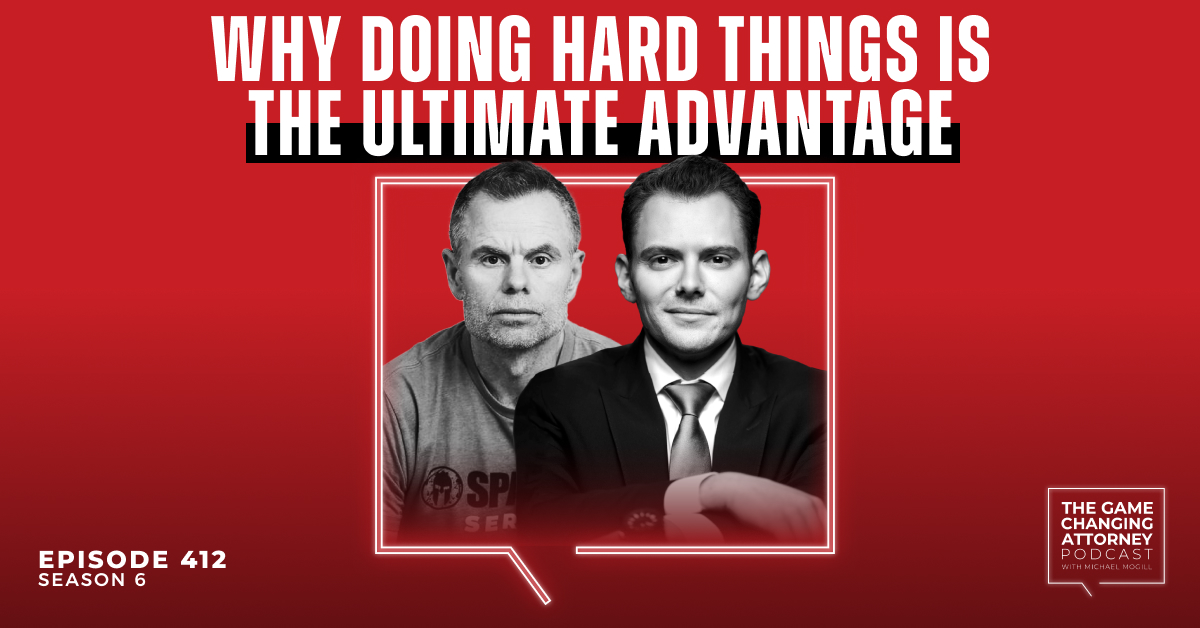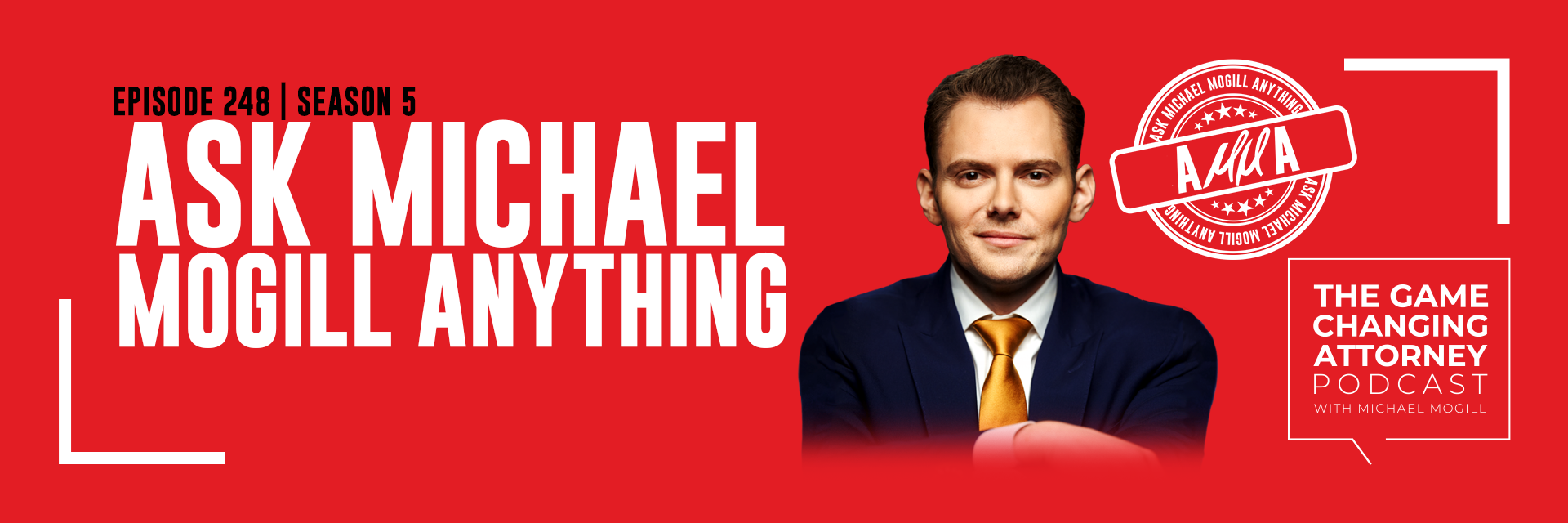
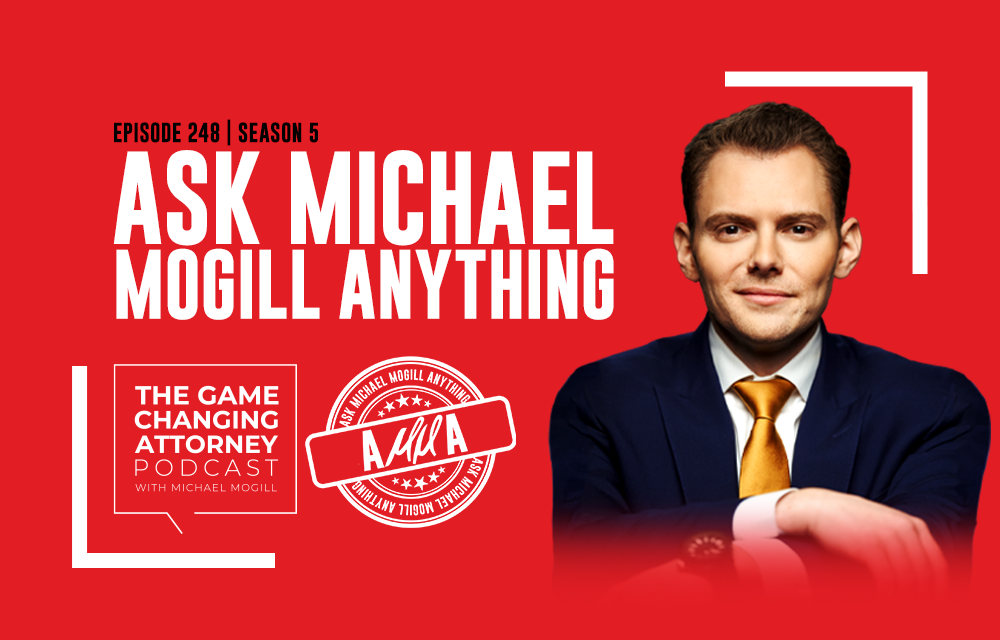
Episode 248 — AMMA — How to Lead Great Meetings
Ever feel like meetings suck up your day, leaving little to show for it? It’s time to discover a more effective approach.
In this episode of The Game Changing Attorney Podcast, Michael and Jessica Mogill will teach you:
- How to structure and stick to an action-oriented agenda
- How to streamline your meetings to get more done in less time
- Strategies for keeping meeting participants engaged
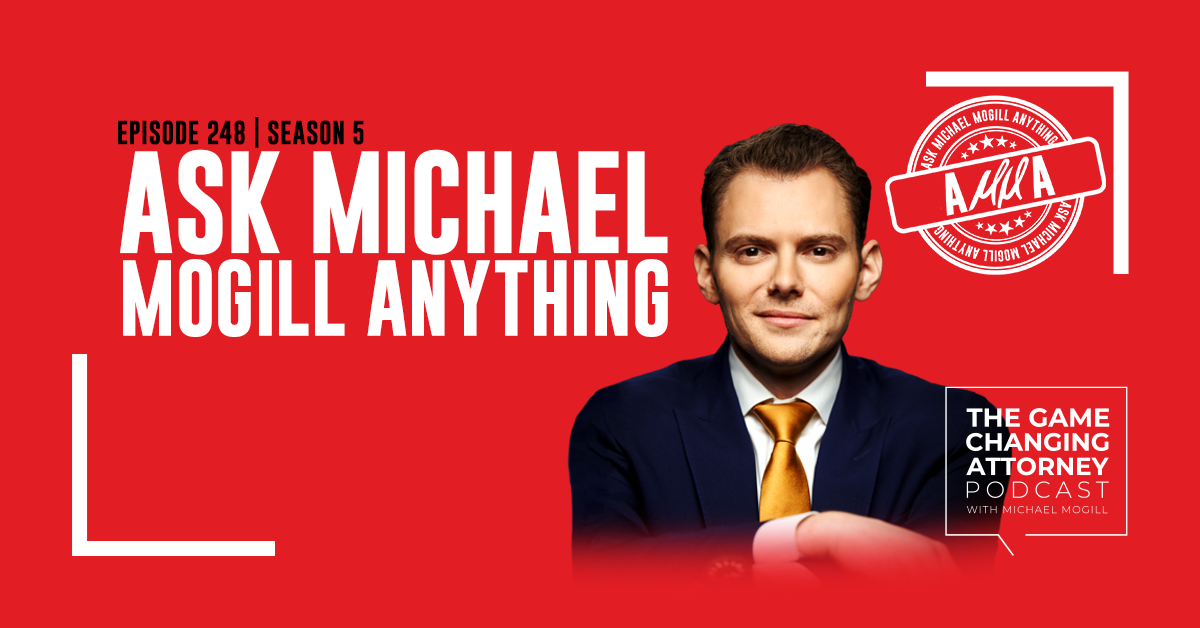
Listen & Subscribe
Show Notes:
Time is money. “Meetings are fairly simple, but they’re not easy. It’s important that there is clarity of expectations. Start by asking ‘Why are we even doing this meeting? What are we doing? What are we setting out to achieve? Is this a meeting to brainstorm ideas, or is this a meeting to make decisions?’ Also, ‘Who needs to be in the meeting?’ because if you just invite everybody by default, and then people find themselves in meetings all day, then you’re just going to have people bullshitting all day and not a whole lot getting done. The only people that should be in meetings are those that contribute to said meetings and said decisions. Not, ‘Hey, I think you should be in this meeting just to hear what everyone’s talking about,’ because then you have half the people in the meeting just there to observe. That’s a very expensive meeting.”
No prep? No meeting. “Have an agenda up front. You’re not figuring out the agenda in the meeting. That agenda should always be clear up front so that people show up prepared because there’s no worse meeting than someone showing up and saying, ‘I didn’t know I needed to do that,’ or ‘I’m not prepared.’ It’s not productive. It’s a waste of everybody’s time. It’s disrespectful. I remember back in the day, years ago, I would make it clear that anytime I would have a meeting with anyone — with teams, department heads, even one-on-ones — that I would need this agenda at least 24 hours in advance: everything organized, everything prepared. If we’re going to be talking about metrics and data, those metrics came in advance so that I could review them. If we had to make decisions, I had gotten full context in advance before I reviewed it. If we did not have an agenda and if we did not have those resources at least 24 hours in advance, then the meeting didn’t happen.”
Trim the fat. “If you want to make all of your meetings more productive, immediately take all of your hour-long meetings and make them 30 minutes, and you’ll see what happens. If you give something an hour, it’ll take an hour. The best meetings are the ones where we need to get through everything as quickly as humanly possible and to be as efficient as possible so we can get back to actually doing the work and executing on things we need to accomplish.”
Be engaged. “During meetings, if you’re seeing people staring at the wall or the ceiling or daydreaming, ask yourself: Have you established clear standards and expectations for these meetings? For example, one of the things we did was set the expectation that only one person in a meeting (the note taker) has their laptop open. Everybody else has their laptops closed because we’ll get distracted with Slacks and emails popping off. Again, we go into these meetings thinking about how we can do this in the least amount of time so it can be as effective and productive as possible. That’s number one. If you’re letting people stare up into the sky or are letting them sit there daydreaming, maybe they don’t understand the purpose of the meeting. Maybe they don’t make a contribution. Ask yourself if you’re modeling the right example. Are you present in said meetings? Again, this comes back to leadership. I’ve seen leaders that are sitting there in meetings — they’re physically in the room, but mentally they’re somewhere else. They’re responding to other messages. I’m guilty of this myself. I’ve done it too. We’re not perfect, but if you want someone to model a certain type of behavior, you have to start with that first. You have to be the example. So you have to show up and you have to be ready. You have to be prepared. You have to be focused. You have to be present. From there, you’ll find that you can actually get more done in a lot less time.”
Necessary meetings only. “The easiest way to determine what meetings are necessary and what meetings can be eliminated is just not show up to any of your meetings and see if the business still exists after that. I mean, I’m kind of half joking. It’s worth a shot. That being said, a lot of times you’re in a reactive state at this point because you find yourself overwhelmed and you just feel like you’re in meetings all day long. The best way to do this is kind of like the phrase ‘The best time to plant a tree was 100 years ago; the second best time is today.’ But when you are setting a new meeting or recurring meeting on your calendar, it’s important to really evaluate that and ask yourself: Is this a meeting that is essential to have every single week at this time on this date? If so, you’re filling that time on your calendar and you can’t get that time back. Now you’re allocating another 30 minutes or another hour that could go to something else, but now it has to go to this. You have to look at it and ask, ‘Is this going to be the highest and best use of my time every single day or on this day for this amount of time?’ If it’s not, then maybe you need to try it out and not make every meeting recurring, but start off by doing just one meeting. Then, at the end of that meeting, evaluate what the future cadence needs to be.”
Delegate to elevate. “Are you, as the owner of the firm, the best person to conduct all of your meetings? Maybe it makes sense to let go and empower some of your team leads or somebody else within your organization to be able to conduct those meetings. Then that person reports back to you so you can oversee five or six different meetings in a week, but you only have to go to one of them. It’s also important to consider what you could do with this newfound time, because if you look at it and say, ‘Hey, I’m caught up in meetings all day, but I really believe I need to be taking other referring attorneys to lunch or being able to build relationships within the community or brainstorming what our strategy or marketing strategy should be,’ and if that would allow you to move the needle in your firm, then perhaps that’s more important than sitting in all these different meetings.
RESOURCES & REFERENCES
Meeting Cost Calculator for Google Calendar
Slack
Teams
Zoom
Connect with Michael
- Text directly at 404-531-7691

